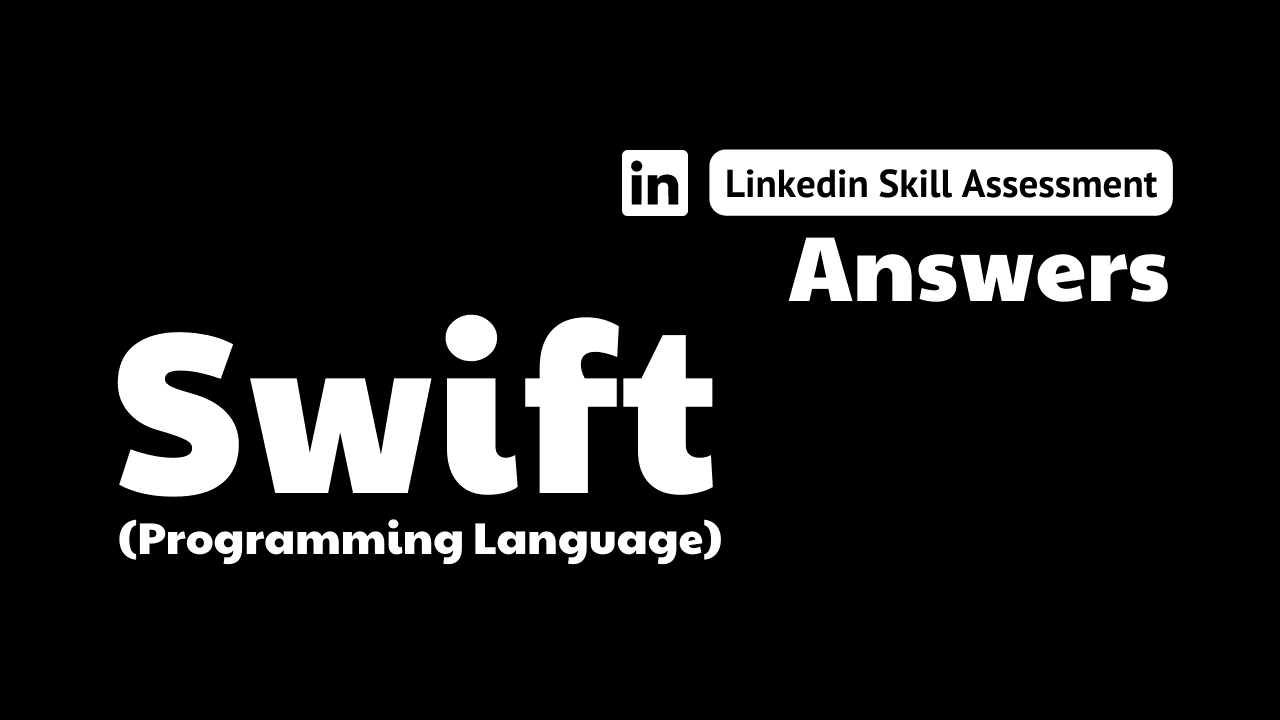
swift linkedin assessment answers
1. What is the value of val after this code is executed?
let i = 5
let val = i * 6.0
- 6
- 30
- 0
- This code is invalid
2. What data type is this an example of?
let vals = ("val", 1)
- a dictionary
- an optional
- None, this code contains an error.
- a tuple
3. What is wrong with this code?
let val = 5.0 + 10
- val is a constant and cannot be changed.
- 5.0 and 10 are different types.
- There is nothing wrong with this code.
- There is no semicolon.
4. How many parameters does the initializer for Test have?
struct Test {
var score: Int
var date: Date
}
- This code contains an error.
- zero
- Structs do not have initializers.
- two
5. How many values does vals have after this code is executed?
var vals: Set<String> = ["4", "5", "6"]
vals.insert ("5")
- eight
- three
- four
- This code contains an error.
6. What is the return type of this function?
func printMe(returnMe : String) -> Int
- String
- Void
- func
- Int
7. What is the correct way to call this function?
func myFunc(_ a : Int, b: Int) -> Int {
return a + b
}
- myFunc (5, 6)
- myFunc (5, b: 6)
- myFunc(a: 5, b: 6)
- myFunc(a, b)
9. The Codable protocol is _____.
- not a true protocol
- automatically included in all classes
- required of all classes
- a combination of Encodable and Decodable
10. How many times will this loop be performed?
for i in ["0", "1"] {
print(i)
}
- two
- one
- None, this code is invalid
- three
11. What must a convenience initializer call?
- either a designated or another convenience initializer
- none of these answers
- a designated initializer
- a base class convenience initializer
12. What is printed to the console when this code is executed?
"t".forEach { (char) in
print(char)
}
- t
- Nothing, since the code contains an error.
- nil
- zero
13. What is the value of test after this code executes?
let vt
= (name: "ABC", val: 5)
let test = vt.0
- 0
- ABC
- name
- 5
14. When is deinit called?
- when a class instance is being removed from memory
- when a class instance needs memorv
- all of these answers
- when the executable code is finished




